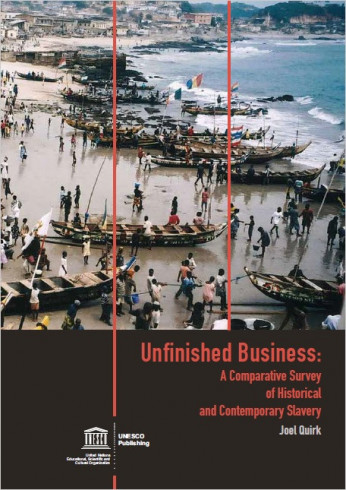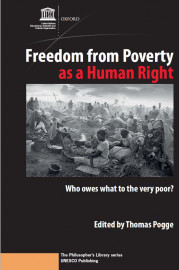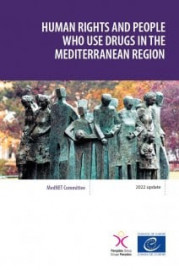DL Services SPRL
Rue Vanderborght 24
1081 Brussels Belgium
info@dl-servi.com
Unfinished business: a comparative survey of historical and contemporary slavery
Available
The history of slavery raises many uncomfortable political and moral questions. Until relatively recently, legal enslavement was widely regarded as a natural and all but inescapable feature of human existence, which appears to have been sanctioned, in one form or another, by every major civilization and religion. The key break with this enduring precedent occurred in the second half of the eighteenth century, with the emergence of an organized anti-slavery movement in some parts of Europe and the Americas. This fledgling movement would face tremendous political and economic obstacles. From the sixteenth century onwards, European traders had been supplying colonial settlements in the Americas with ever increasing numbers of slaves from Africa. The history of slavery raises many uncomfortable political and moral questions. Until relatively recently, legal enslavement was widely regarded as a natural and all but inescapable feature of human existence, which appears to have been sanctioned, in one form or another, by every major civilization and religion. The key break with this enduring precedent occurred in the second half of the eighteenth century, with the emergence of an organized anti-slavery movement in some parts of Europe and the Americas. This fledgling movement would face tremendous political and economic obstacles. From the sixteenth century onwards, European traders had been supplying colonial settlements in the Americas with ever increasing numbers of slaves from Africa. The history of slavery raises many uncomfortable political and moral questions. Until relatively recently, legal enslavement was widely regarded as a natural and all but inescapable feature of human existence, which appears to have been sanctioned, in one form or another, by every major civilization and religion. The key break with this enduring precedent occurred in the second half of the eighteenth century, with the emergence of an organized anti-slavery movement in some parts of Europe and the Americas. This fledgling movement would face tremendous political and economic obstacles. From the sixteenth century onwards, European traders had been supplying colonial settlements in the Americas with ever increasing numbers of slaves from Africa. The history of slavery raises many uncomfortable political and moral questions. Until relatively recently, legal enslavement was widely regarded as a natural and all but inescapable feature of human existence, which appears to have been sanctioned, in one form or another, by every major civilization and religion. The key break with this enduring precedent occurred in the second half of the eighteenth century, with the emergence of an organized anti-slavery movement in some parts of Europe and the Americas. This fledgling movement would face tremendous political and economic obstacles. From the sixteenth century onwards, European traders had been supplying colonial settlements in the Americas with ever increasing numbers of slaves from Africa. The history of slavery raises many uncomfortable political and moral questions. Until relatively recently, legal enslavement was widely regarded as a natural and all but inescapable feature of human existence, which appears to have been sanctioned, in one form or another, by every major civilization and religion. The key break with this enduring precedent occurred in the second half of the eighteenth century, with the emergence of an organized anti-slavery movement in some parts of Europe and the Americas. This fledgling movement would face tremendous political and economic obstacles. From the sixteenth century onwards, European traders had been supplying colonial settlements in the Americas with ever increasing numbers of slaves from Africa. The history of slavery raises many uncomfortable political and moral questions. Until relatively recently, legal enslavement was widely regarded as a natural and all but inescapable feature of human existence, which appears to have been sanctioned, in one form or another, by every major civilization and religion. The key break with this enduring precedent occurred in the second half of the eighteenth century, with the emergence of an organized anti-slavery movement in some parts of Europe and the Americas. This fledgling movement would face tremendous political and economic obstacles. From the sixteenth century onwards, European traders had been supplying colonial settlements in the Americas with ever increasing numbers of slaves from Africa. The history of slavery raises many uncomfortable political and moral questions. Until relatively recently, legal enslavement was widely regarded as a natural and all but inescapable feature of human existence, which appears to have been sanctioned, in one form or another, by every major civilization and religion. The key break with this enduring precedent occurred in the second half of the eighteenth century, with the emergence of an organized anti-slavery movement in some parts of Europe and the Americas. This fledgling movement would face tremendous political and economic obstacles. From the sixteenth century onwards, European traders had been supplying colonial settlements in the Americas with ever increasing numbers of slaves from Africa.
Génération de facture pro forma disponible dans le panier.


















